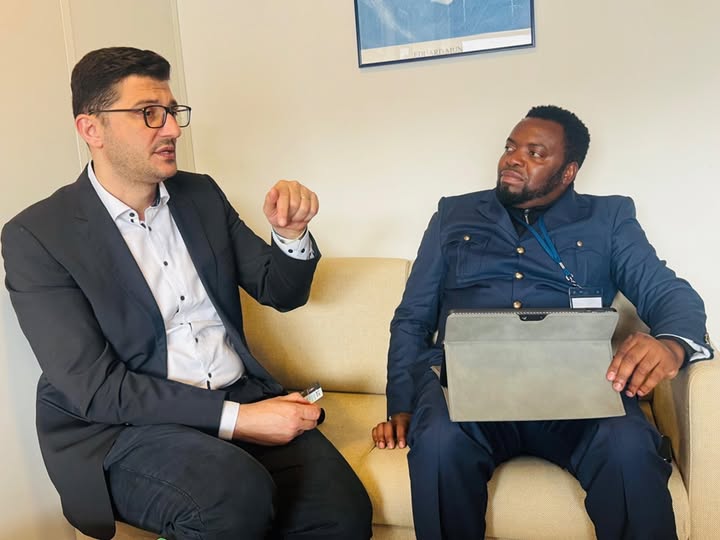UNESCO Partners with Zambia to Assess AI Readiness for Sustainable Development
The United Nations Educational, Scientific, and Cultural Organisation (UNESCO) has committed to partnering with Zambia to conduct a comprehensive national Artificial Intelligence (AI) readiness assessment.
This initiative aims to facilitate the implementation of UNESCO’s recommendations on the ethics of AI and generate evidence-based data to guide Zambia’s integration of AI technologies for sustainable development.
The commitment was announced by Mr. Irakli Khodeli, Head of UNESCO’s Ethics of AI Unit, during a meeting with Dr. Larry L. Mweetwa, Director of Science, Technology, and Innovation at Zambia’s Ministry of Technology and Science. The meeting took place on the sidelines of the Global Ministerial Dialogue on Science Diplomacy at UNESCO Headquarters in Paris.
Dr. Mweetwa represented Hon. Felix C. Mutati, MP, Minister of Technology and Science, who was engaged with other national duties.
Mr. Khodeli outlined that the readiness assessment will involve a comprehensive analysis of Zambia’s AI landscape, focusing on legal and regulatory frameworks, technical infrastructure, social and cultural factors, education and scientific research, and economic considerations.
The assessment will be conducted over four months by qualified experts to identify opportunities and challenges in Zambia’s AI adoption.
“This is not just an exercise in ranking but a crucial step towards understanding Zambia’s specific needs and addressing gaps in AI strategy and implementation,” Mr. Khodeli said. He emphasized that AI holds the potential to transform key sectors, including healthcare, agriculture, and education.
UNESCO has also invited Zambia to participate in the Global Forum on AI Ethics, set to take place in June 2025 in Bangkok, Thailand. The forum will provide a platform for international collaboration on AI governance and ethical considerations.
Additionally, Zambia has been invited to join the Global Network of AI Supervisory Authorities to promote responsible AI use and prevent potential abuses.
Dr. Mweetwa welcomed UNESCO’s support and reaffirmed Zambia’s commitment to ethical AI development in line with international standards. He highlighted ongoing government efforts, including the establishment of a governance framework to ensure ethical AI deployment, data privacy protection, and fairness in AI-driven decision-making.
He also revealed plans to set up an AI National Council and sector-specific technical working groups to oversee AI integration across various industries.
“We are here to explore how Zambia can align itself with UNESCO’s recommendations on the ethics of AI and actively participate in global networks to benefit from technical support and guidance,” Dr. Mweetwa stated.



